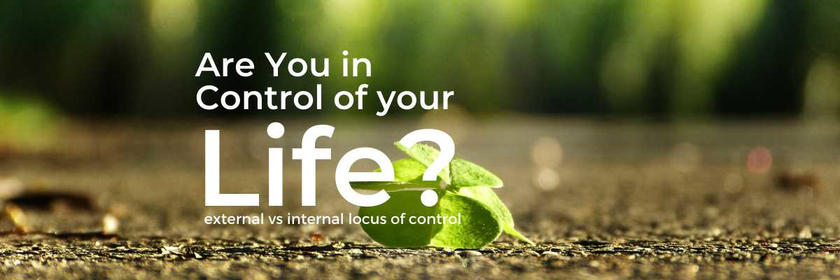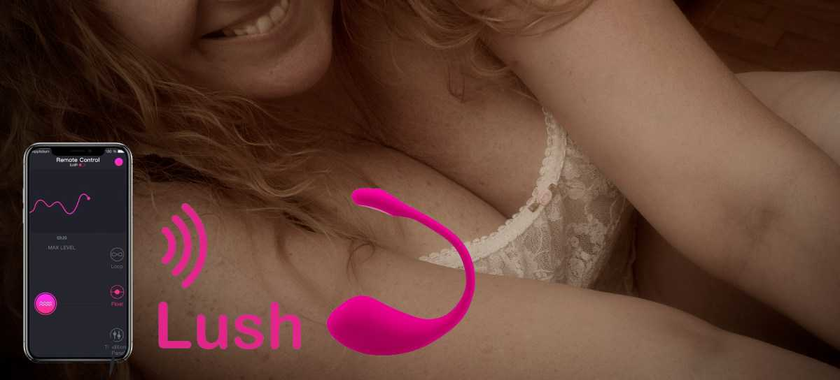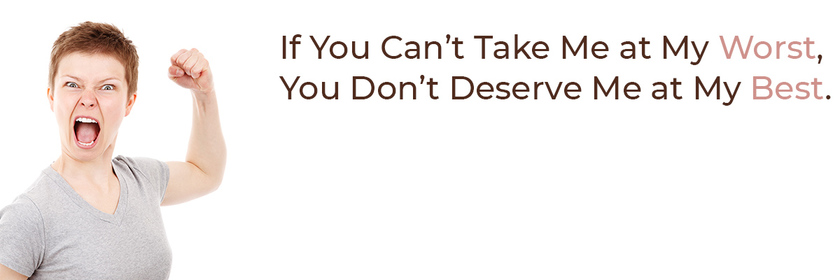There is a little known psychological concept that has a deep impact on most of our lives. The concept is external vs internal locus of control.
So what is a locus of control and why should you care?
Basically, your locus of control means the place which controls much of what happens in your day-to-day life. This can include personal and professional success, mood, self-confidence and self-perception. Although the reasons for adopting an internal vs external locus of control vary, experts suggests childhood may have a large impact on which locus we internalize. Nevertheless, it is a very important concept and by being aware of it we can come to a an understanding as to what type of locus of control we subscribe to and how it impacts us.
"It's not my fault!"
Let's start with an external locus of control. Basically, having an external locus of control means you perceive much of what happens in your life as being out of your control. For example, you may see your mood and emotions as being largely dependent on how other people treat you. When someone compliments you this elevates your mood and causes joy while a criticism would cause you to feel anger or sadness. You feel like a weather vane at the mercy of the winds, or a ship without a keel, being pushed this way and that depending on how you see yourself being treated by others.
People with an external locus of control will usually find external reasons to explain success or failures. For example, if you pass a test with high marks you may say, "The test was too easy" or "I was lucky, I already knew a lot of the answers". Conversely, if you failed the test you might say, "The test was too hard, it wasn't fair" or "The instructor did a bad job teaching me". In both cases the individual did not take any responsibility for the outcome of the test, choosing instead to assign blame to the instructor's competence or the difficulty of the exam.
An external locus of control can also see the world as being stacked against you, resulting in a defeatist "Why bother?" attitude. The reasons for this could include your economic status ("I was born poor so I'll always be poor" ), race, sexual preference or even physical attractiveness ("Nobody likes me because they think I'm ugly" ). This can lead to a refusal to even try, preferring instead to blame external factors for any perceived failure.
"You make me so angry!"
In the context of a romantic relationship, someone with an external locus of control might say something like, "It's all your fault we are fighting because you made me angry." He might also say something like, "She came on to me, what was I supposed to do?" In both cases blame is assigned to another person, releasing the speaker of any responsibility. They are suffering from things done to them as opposed to taking action. Because they are at the emotional and psychological mercy of others, they see themselves as not being responsible for their actions.
[pullquote]When you see yourself as being in control of your life, you are more likely to learn from your mistakes.[/pullquote]
Having an external locus of control can lead to a "victim mentality". Seeing oneself as the helpless victim of malevolent forces can easily lead to fear, anger and bitterness. This can then turn these negative expectations into a kind of self-fulfilling prophecy. If you believe the world is out to get you and you are helpless to do anything about it, then you are less likely to act in a way that changes your situation. As more negativity comes your way you see this as additional proof that the world is a dark, evil and unfair place bent on oppressing you, and on and on you go.
Subscribing to an external locus of control can often lead to depression, paralysis, anger and fear. Since so much of your life is dependent upon the whims of others, if a casual word can send you into the depth of sadness and anxiety, then you are more likely to live your life waiting for something bad to happen. It may even make it hard to get up in the morning.
My Life is in My Hands
Alternatively, an internal locus of control puts your mood, emotional and psychological well-being squarely in your hands. You aced the test because you worked hard, not because it was too easy. Your life is in your hands, dependent on your actions (or lack thereof). You see yourself as having the tools and the means to succeed, and have the confidence to take actions. Setbacks are more likely to be seen as something you did ("I did not prepare enough for the interview" ) as opposed to being the result of outside forces ("The interviewer was biased against me, there was nothing I could do" ).
When you see yourself as being in control of your life, you are more likely to learn from your mistakes.
[pullquote style="right"]Where is your locus of control?[/pullquote]
As opposed to having an external locus, an internal locus of control is more likely to lead to greater emotional self-control. Instead of blaming others for one's emotional reaction by saying "She makes me so mad!", you are more likely to say "I chose to be mad at what she did". This exercises power over your emotions, shifting the locus from another person to yourself. Knowing that ultimately you will take responsibility for your actions may cause you to think twice before saying or doing anything potentially hurtful, for in this situation there is no safety net.
"You Know How I Get When I Drink!"
Here's another situation. After a night of drinking that resulted in a huge fight, your partner says, "Come on, you know how I get when I drink. You should have stayed away from me!"
Take a moment to think about this statement. Does he have an external or an internal locus of control?
If you said an external locus, we are in agreement. He is not taking responsibility for his actions, instead preferring to blame the alcohol. He then went on to blame you for the fight, since you failed to realize how helpless he was in that situation. Between the drink and you, he has effectively shed all responsibility for the night's events and is not likely to learn from the situation.
Of course, some things are beyond our control and few of us are in complete control of everything in our lives. Nevertheless, by taking on as much power and responsibility over our lives as we can, we take back control.
So where is your locus of control?

Pardon the delay on my report on the worldwide Orgy!! It was soo much fun!! ... so much so that I am adding in the Lush toy into my services...
Anyway, back to the Orgy story :)
I purchased my Lush toy recently and had been wanting to try it out, what better way to do so than during an online #orgy for Masturbation May!! ( I didn't even know it was a thing!! )
To my surprise I didn't have to wait until the 9pm starting time for my time zone! As soon as I connected to the app my vibe started!! Every time someone tweeted the hashtag I felt it!! What a way to start a Saturday!
I also shared my handle on the app with a fella on the east coast of the USA. It was completely random, and I did get other requests for my handle via twitter but hey! I thought one stranger was enough LOL!
Being on the west coast of Canada, I was curious as to how this whole thing would work out !! We chatted on the app and decided that when I went out for a walk he could "control" my vibe!!
My husband and I decided that we ...

I am taking the plunge and joining in the #LovenseOrgy happening online tomorrow 9pm PST ~ celebrating Masturbation May! ~ who knew?? 😇
I did not! ( you can find out all about it through Twitter, if you are interested in joining too! )
I have recently purchased one of their remote control toys and what better way to try it out, then adding in some hashtag pulses !!
Check back in a couple of days and I will post my hopefully! exciting experience as well as a detailed review of the toy itself!!
With pleasures,
Selene xo

If you can’t take me at my worst,
you don’t deserve at my best!
Have you seen this quote, perhaps as a meme or on a relationship board? Do you agree with it?
I believe these words holds within them the reasons why so many couples have such trouble communicating with each other. Basically, I believe this quote says that no matter how bad my behaviour is, it is my partner’s responsibility to “take it”. The reward for taking my negative behaviour, whether it be anger, jealousy, competitiveness, pettiness, are the wonderful things I will do and say once my dark mood passes. Basically, I am such an amazing person that in order to be worthy of being my partner they must be ready to take all of my hurtful behaviour without complaint.
Let that sink in a moment. I am such an amazing person that anyone wishing to enjoy my company must prove their worthiness by submitting to my darker moods without question. Any hint of consequences just proves that he is not “the one” and I must continue the...













